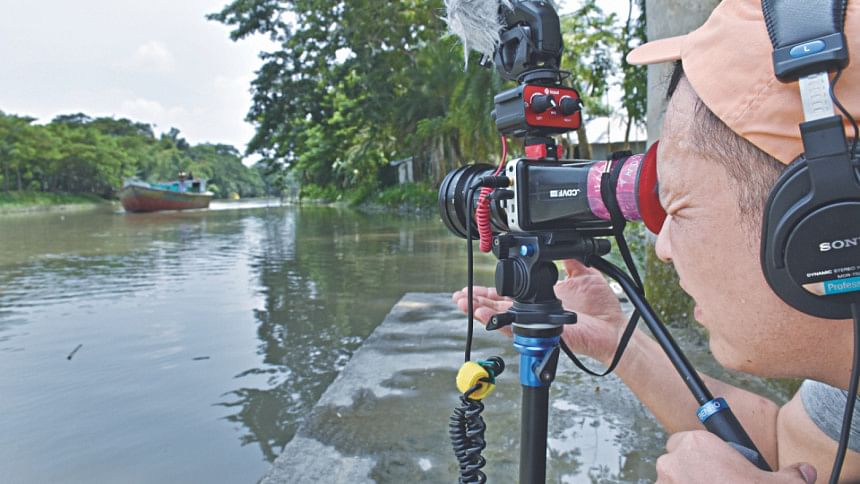‘The most alone of poets’

“I fell in love with how modern Jibanananda Das’ work was, and how unusual the temperament behind it was. And it’s not just his poetry, his life is just as interesting to me,” said Japanese filmmaker Hiroshi Sunairi, who has been researching on Das for the past few months.
Currently a resident of New York City, Sunairi has made 16 films in 22 years -- each with a unique theme and location. His last film, “Qué Tan Lejos/How Far Am I”, was about Mexican poet José Rico’s return to his hometown Ciudad Juárez, and visiting old friends, family members and landscapes of the border town that was ravaged by the drug war.
Poetry has long been an area of interest for Sunairi, and his next film will be based on the life and works of Jibanananda Das, a poet overwhelmingly loved and revered by Bengali poetry lovers and enthusiasts. Sunairi has already made multiple visits to Das’ birthplace, Barishal, for research.
“My 2013 experimental short film ‘Where it flows out into the plains’ was sort of a travelogue on India. I wanted to use some poetry recitation in the film, and my Indian associate producer suggested Jibanananda Das,” Sunairi said over a Skype interview recently.
That is when he started reading Das’ translated works, and connected with them deeply. “I became fascinated with how he was ahead of his time. I feel he was kind of arrogant about this -- he knew how good he was. He was sort of an outcast… not really included in the writers’ circle of the time. There was loneliness in his life -- both as a person and a writer,” Sunairi said.
“Das was very confident about his ability as a poet and writer. This confidence and loneliness made up such an interesting, almost hybrid kind of personality. He was postmodern, in many ways,” he added.
Das lived through some interesting times, especially partition in 1947. Sunairi picked up on this, and decided to make a biographical film. “At the same time, I read Jibanananda Das’ short stories, and those were just like experimental cinema to me. The stories don’t follow a specific formula or chronology, yet some of the dialogues are so sharp and memorable,” he said.
Sunairi is making two films: one, an experimental research documentary on Das, and another a fiction based on his short stories. During the months of June and July, Sunairi visited Kolkata and Barishal to get to know the poet and his origins. “I met reciters, and shot them reciting Das’ poetry in different locations based on the context of the poems,” said Sunairi.
When asked about his opinion on Jibanananda Das’ style and themes, Sunairi said he thinks Das found his language and style in his very early works. “The level of complexity in his work is a perfect fusion of western literary context and regional content,” he said.
Jibanananda Das’ nihilistic themes have been of interest to readers and critics for decades. Sunairi has a unique perspective on it: “Das’ obsession with death, for me, is a condition that creators often go through, because they strive to produce something that lives forever in the history of literature -- a world that’s complete in words. Though he based his experiences of nature during his time in Barishal, ultimately when he had to make sense in poetry that is a hermetic world that exists only there. It resembles life but it is always fiction, because it’s a perfect fabrication of reality. When people strive so hard to create this art that lives on, often their own lives become less important. So, indulging in another world that’s not about living life, but living in words, is death, I consider. You are no longer living; you are trapped in the abstraction of your mind.”
Having made films in several countries and about different cultures in the past, Sunairi says he will take extra care to ensure that Bengali culture does not get diluted or commodified in the films, with help from local experts.
“However, I plan on showing Das’ life and work through a unique lens -- highlighting his lesser known poems, and the hidden sides of his life,” he said.
Sunairi’s films have been screened all around the world, from India and Vietnam to USA. The films on Jibanananda Das will tentatively be released next year.

 For all latest news, follow The Daily Star's Google News channel.
For all latest news, follow The Daily Star's Google News channel. 



Comments